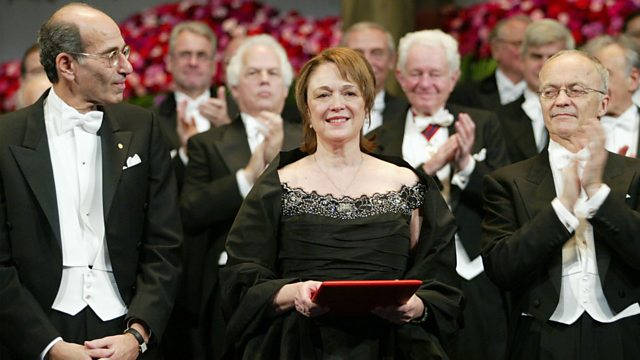Why do so few women scientists win the Nobel Prize?
This year's Nobel Prize season has started with a Brit and two American scientists sharing the prize for medicine. They discovered how our bodies sense and adapt to fluctuating oxygen levels. Peter Ratcliffe, William Kaelin and Gregg Semenza join their 856 male colleagues on the Nobel pedestal of science. But in the history of the Nobel Prize, which goes back to 1901, only 52 women have won and when they have it's mostly been for the peace and literature prizes. So why are there so few female scientists winning? Newsday's James Copnall caught up with science historian and the author of 'Women Scientists in America', Professor Margaret Rossiter.
(Photo: Medicine winner Linda B. Buck and Dr Richard Axel and Economics prize winner Professor Kydland pose during a Nobel Prize ceremony at the Concert Hall in Stockholm in 2004 Credit: Henrik Montgomery/AFP/Getty Images)
Duration:
This clip is from
More clips from Newsday
-
![]()
Liam Payne: Fans mourn death of One Direction singer
Duration: 03:35
-
![]()
Sudan's footballers provide 'joy amongst the chaos'
Duration: 04:00
-
![]()
Hurricane Milton: The residents deciding to stay, or evacuate
Duration: 02:59






